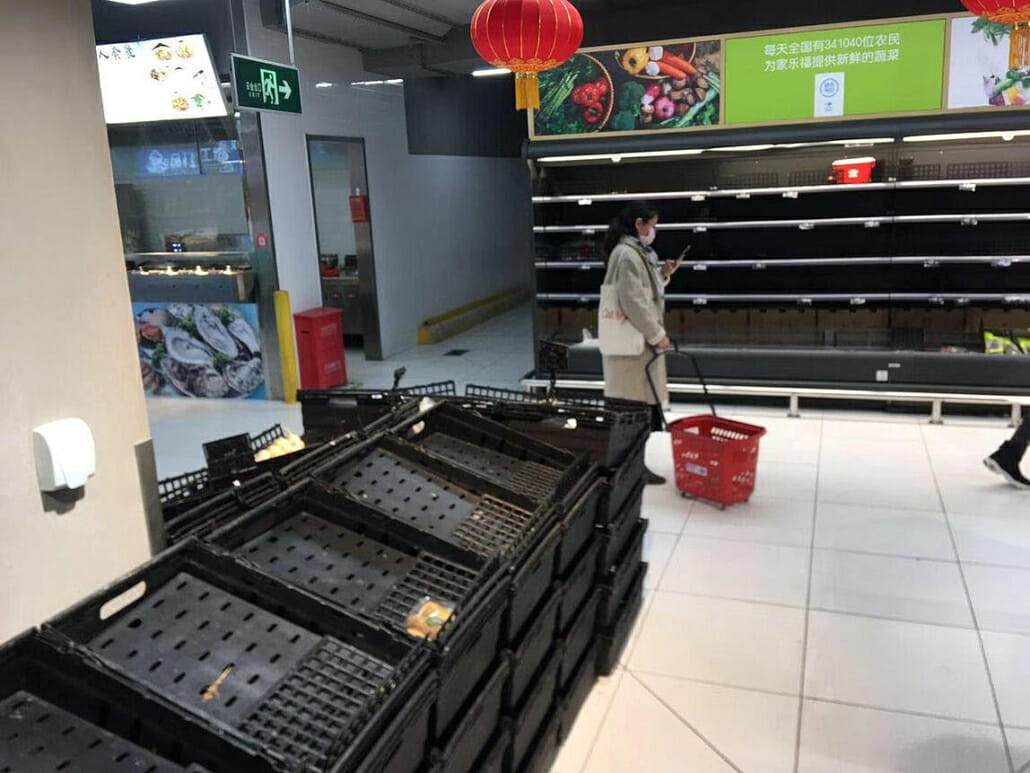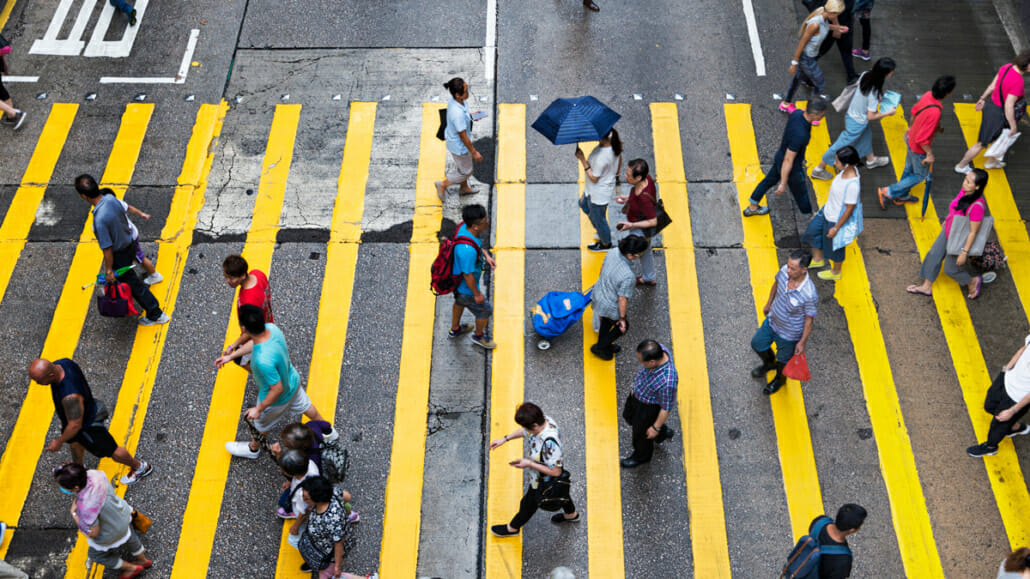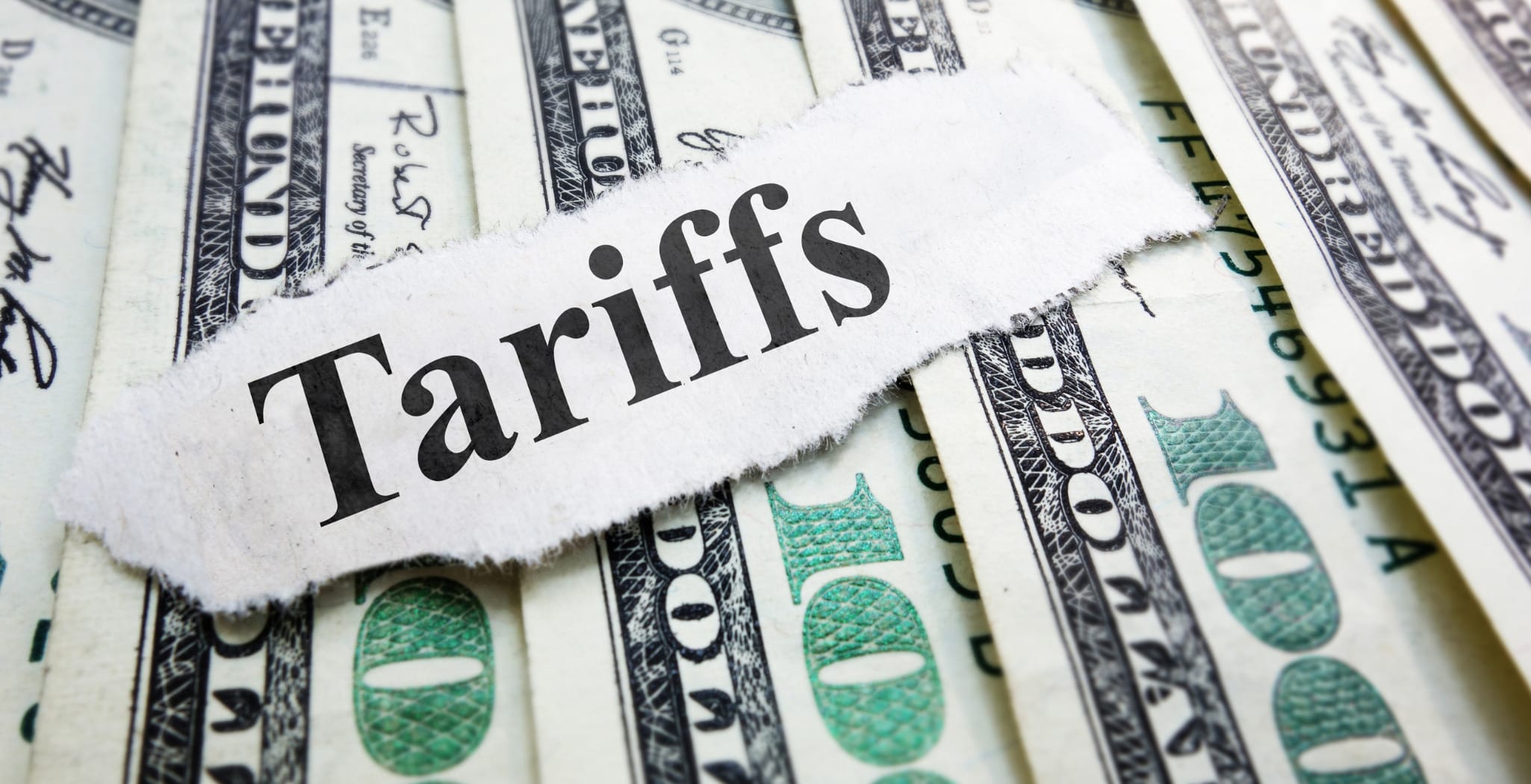Undoubtedly the unfortunate news of China’s health epidemic has come to your attention. The virus couldn’t have hit at a worse time.
The virus couldn’t have hit at a worse time, just prior to the largest annual migration of humanity when more than 750 million travel back to their hometowns for the Chinese New Year. The holiday period was originally scheduled from Friday, January 24th, until Thursday, January 30th, with Saturday February 1st as a workday.

Actual domestic outbound flight in China.
China is taking unprecidented steps to contain the virus, much more so than compared to 20 years ago during the SARS outbreak. Depending on the region, people have been asked not to return to work until February 7-10th. Schools are closed until Monday February 17th. Those dates could get pushed out (again) as the government takes measures to get infection rates under control.
During this Chinese New Year holiday week, life carries on for CMD/Baysource’s professionals living in China. Their safety is our top priority. They are processing updates: in newspapers, on TV, in WeChat and other social media outlets — and wondering what will come next. We assume you’re wondering too.
Our mission is to proactively update you on:
- What we’re hearing from out CMD/Baysource colleagues on the ground (above and beyond what you may hear in the news).
- Our take on what may happen after Chinese New Year.
- How CMD/Baysource will manage supply chains on behalf of Clients.
- Steps we recommend you take if China is on your travel radar.
Of course, the situation is changing by the hour. We will offer updates as we learn more.
Beyond the news
What we’re hearing from our colleagues (beyond the news):
- In Beijing all businesses are closed except those considered vital, including healthcare, pharmacies, gas stations, supermarkets, and utilities.
- In Shanghai, major highways are closed, along with Disney, museums, movie theaters, restaurants, etc. Government workers were told to stay home until the 7th of February.
- Bread and vegetables stocked in grocery shelves disappear daily by 9:30 a.m.

Store shelves are quickly emptied by 9:30AM. Bread and vegetables are first to go.
- Several large multi-national companies are sending their expatriate employees and their families home right now. Most are asking employees to stay home until further notice.
What we expect
- Looking at past outbreaks of MERS and SARS, the Coronavirus outbreak will slow down business in China (and potentially across Asia) for several months.
- Extended closures of factories by region may be ordered. Suzhou is the first order to extend closure until the 7th of February.
- Closures will put added pressure on an already slowing economy.
- Once the situation calms down, workers will be anxious to get back – to resume the cash-flow upon which families and livelihoods depend on.
How CMD/Baysource will manage supply chains
In the short-term, CMD/Baysource professionals will work remotely and stay connected with the factories our clients depend on to understand their schedules for re-opening. This may vary region by region.
When factories re-open for business, it’s business as usual for CMD/Baysource.
- CMD/Baysource teams will avoid crowds and not be using public transportation wherever possible, including metros, planes, and trains.
- As is safe and feasible, inspections will resume. The photographs, video, and detailed reports clients rely on will continue – business as usual.
- For those clients who were planning on coming to China to work side-by-side with us, logincally travel is not recommended at this time. CMD/Baysource teams can facilitate (and replicate) this work on an as-needed basis, via live video conferencing, recorded video meetings, and other technologies as appropriate.
- SE Asia and India are open for business – and our work there will continue.
- CMD/Baysource will be working with Clients on a case-by-case basis to develop specific and appropriate measures for managing business in China.
What you can do
- If you are planning on traveling to China, we recommend postponing until we get more clarity and can make fact-based decisions on when it is appropriate to do so.
- If tickets need to be purchased, ensure they are fully refundable, and changes can be made without restrictions and penalties.
- If you already booked travel, many airlines are offering flexibility with rescheduling.
- If travel is imminent, use this tip sheet to help stay safe.
Long-term — we continue to recommend diversification of supply chains for social, economic, and political reasons as sound overall business strategy. As reported in previous communications, many Clients have been proactively spreading supply chain activity around SE Asia over the past few years.
Parting thoughts
To put things into perspective, the CDC estimates that “the flu this season has sickened at least 15 million and caused 8,200 deaths, an illness that dwarfs the harm from coronavirus,” as reported by USA Today on January 24th.
It took over 20 months to develop a vaccine for SARS. As with SARS, efforts to contain the virus are of vital importance with the highest immediate impact. We believe it will be several months before something that feels like normal will return.
The current MO? Stay informed, stay home, stay safe.





Follow Us